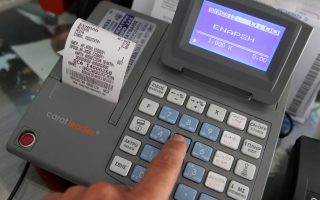Cross-checking set to boost state coffers

The tax administration is utilizing the data collected from the newly introduced system of online bookkeeping to help it expand checks and crack down on tax evasion, especially of value-added tax.
Improved VAT compliance is expected to fetch an extra 1 billion euros per year, while increased cross-checking should fetch an additional €500 million by bringing to light hidden incomes, according to estimates at the Independent Authority for Public Revenue. The online books will also contribute to identifying fake declarations for VAT rebates.
The tax administration’s plan for 2022 is extensive and provides for 25,000 checks of businesses and 2,500 property transfer inspections. Recent experience from Italy, where billions of euros of additional revenues were reaped from such cross-checking, shows the measure is essential.
The IAPR’s arsenal will also expand gradually over the course of the year, with the addition of more monitoring instruments such as spot checks using tablets that will allow inspectors to have access to each taxpayer’s profile and issue any necessary fines there and then.
Finance Ministry officials add that the compulsory use of the IAPR platform for bookkeeping (MyData), does not only contain tax evasion but also leads to the gradual abolition of companies’ client lists, as all invoice data between enterprises are automatically transferred to the IAPR, in real time too.
The tax authorities are further examining the pre-filling of VAT declarations by companies through the details collected on MyData. That development would be of great significance for businesses, as it would slash their costs in this respect, while allowing the tax administration to know exactly how much VAT it should collect every month. That should both contain evasion and reduce delays to the payment of invoices by many companies. The annual loss of VAT dues in Greece is estimated at €5.3 billion.
Tax inspectors will also have access to the new online system, named “Eispraxis,” which identifies debtors who are financially capable of paying off or arranging their debt but doing either. The new system started operating on January 1 and targets strategic defaulters, monitoring them in real time.





